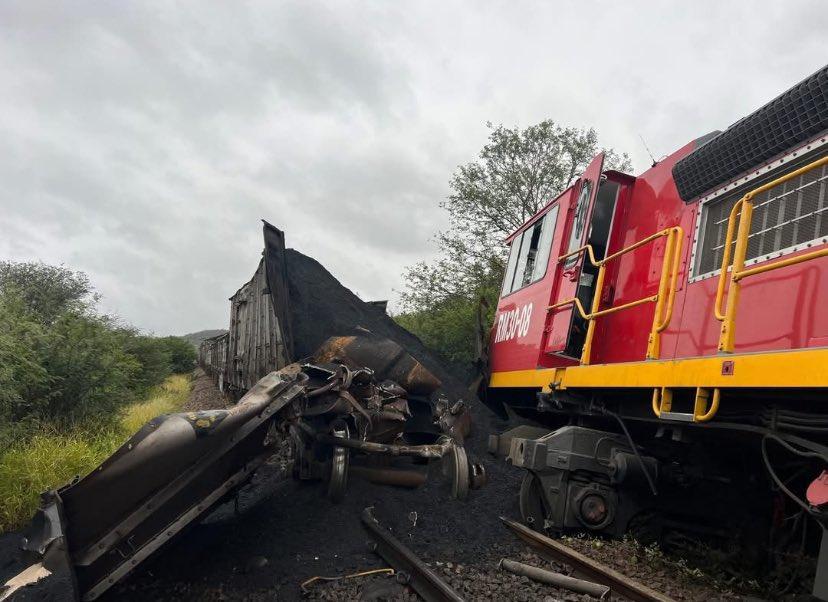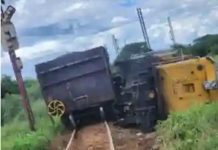Africa-Press – Zimbabwe. The state-owned National Railways of Zimbabwe (NRZ) is being blamed for the train crash that happened near Gwanda on Independence Day, even though it says the trains and the railway line involved are privately owned.
In a statement released on Saturday, 19 April, NRZ said the trains belonged to private companies—Beitbridge Bulawayo Railways (BBR) and Rovos Rail—and that they operate independently of NRZ.
However, journalist Hopewell Chin’ono has said NRZ is still responsible for the country’s railway system under the Railways Act and should be held accountable.
He accused NRZ of pushing “cheap propaganda” by trying to distance itself from the crash, which left several people injured. Chin’ono wrote on X:
Beitbridge Bulawayo Railway (BBR) is a privately owned company, but Zimbabwe’s railway system is and should be regulated by the Government of Zimbabwe through the National Railways of Zimbabwe (NRZ), a state-owned enterprise (parastatal) whose chairman is a ZANUPF politician, Mike Madiro.
BBR operates under a Build-Operate-Transfer (BOT) agreement, allowing it to function within the national railway framework while adhering to standards set forth by the NRZ and the Ministry of Transport.
While BBR is a private company, NRZ holds a 15% stake in BBR, meaning it has a partial ownership interest. NRZ and BBR have also signed an open access agreement which allows BBR to utilise NRZ’s network and NRZ to use the BBR infrastructure. Are you saying your trains use a railway network that you don’t inspect?
The national railway network currently has numerous speed restrictions due to track defects, totalling over 254 km.
These defects cause derailments and delays, as acknowledged by the state media’s Chronicle newspaper of December 5, 2023. This again falls on your doorstep.
Chin’ono also said that all railway operations in Zimbabwe, including those run by BBR, are overseen by the Ministry of Transport.
He explained that the Ministry is in charge of setting rules and standards for the rail sector, and it’s the NRZ’s job to make sure those rules are followed, even by private companies like BBR. Said Chin’ono:
Even though private railway companies like BBR are not explicitly detailed in the Act, because you cannot name all companies in a law, the overall responsibility for setting standards, ensuring safety, and supervising railway operations falls under public authority, particularly through the Ministry of Transport and the NRZ.
Responding to Chin’ono, the NRZ said the accident was not caused by problems with the railway infrastructure, but by operational issues—which they say are not their responsibility. It said:
Just to give some free education. That line is a purely private concession, fairly new and in great condition.
The accident happened not because of infrastructural issues, but operational issues in which the NRZ has no role. Thus, we await a report like everyone else.
According to the Zimbabwe Republic Police (ZRP), 13 people were injured when a BBR train crashed head-on into a Rovos Rail train, which had 47 passengers and 31 crew members on board.
For More News And Analysis About Zimbabwe Follow Africa-Press






